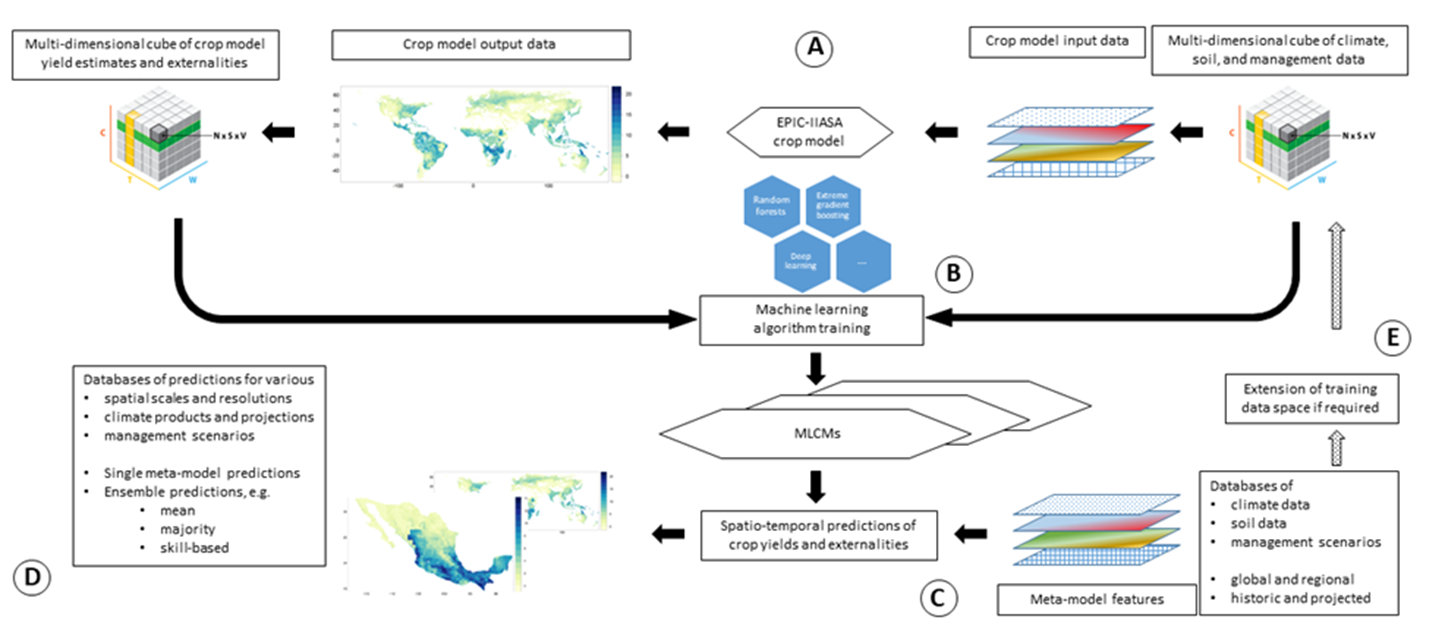The MACROS project develops crop model emulators that allow for rapid and comprehensive assessments of climate impacts on cropping systems and potential adaptation options
Global gridded crop models have become key tools to assess potential impacts of climate change on cropping systems, especially crop productivity. Presently, such models are typically process-based with complex plant and environmental processes being simulated jointly. This level of detail is required to consistently estimate and evaluate various target variables in the plant-environment domain, for example water requirements for plant growth. However, these simulations are computationally very costly and complex to setup and process. To obtain selected key outputs such as crop yields, that are in most studies the sole focus, emulators have become a viable alternative. These mimic the actual model while requiring sparser input data and having a substantially shorter runtime. Besides the time saving per se, this also facilitates much more complex scenario and uncertainty analyses. Simple emulators have been developed in the past but had considerable limitations with respect to spatial resolutions and the flexibility of crop management for climate adaptation.
MACROS bases itself on the hypothesis that machine learning methods, i.e., algorithms that can learn from large volumes of data to provide accurate predictions, enable a new generation of emulators that overcome the above limitations and can facilitate complex scenario analyses.
In a first step, the project team produces a comprehensive multi-factorial set of training data using the in-house process-based crop growth model EPIC-IIASA. These data are then used to train several structurally different algorithms and thereby produce an ensemble of emulators or meta-models. These will be evaluated regarding their individual and combined skills to mimic the original model. Finally, the algorithms will be used to conduct complex scenario analyses, including crop yield predictions for a comprehensive set of climate projections to assess the relevance of projection uncertainty, the role of spatial resolution for the accuracy of crop yield predictions, and studies of adaptation potentials to climate change through cultivar selection and shifts in growing seasons.
Research Partners
Czech Crop Research Institute VURV
Funding
This project is funded by the Austrian Science Fund (FWF) under grant number P 36220-N.
Related publications
Folberth, C. , Baklanov, A. , Khabarov, N. , Oberleitner, T., Balkovič, J. , & Skalský, R. (2024). CROMES - A fast and efficient machine learning emulator pipeline for gridded crop models. DOI:10.5194/egusphere-egu24-5852. In: EGU General Assembly 2024, 14-19 April 2024, Vienna.

